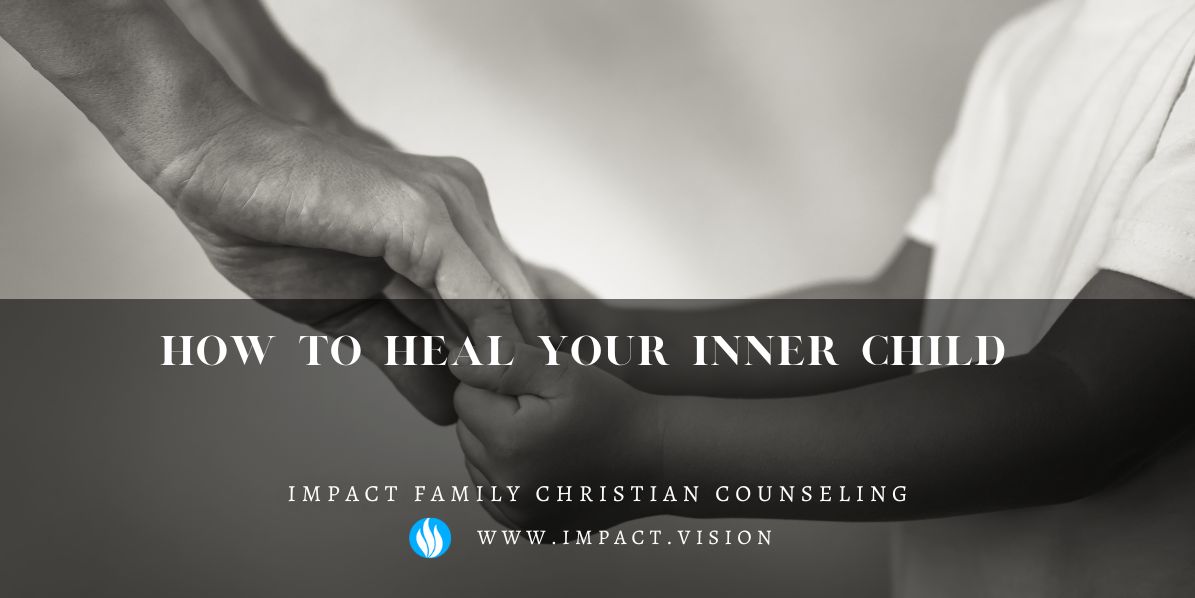Your inner child experiences can have a profound impact on your adult lives. The way you were treated and the experiences you had as children can shape your beliefs, behaviors, and emotional patterns in ways that stay with you well into adulthood.
Your inner child not only impacts your relationships, self-esteem, emotional regulation, coping mechanisms, and creativity, but it also has a significant impact on your mental health. Unresolved childhood traumas or negative experiences can lead to a variety of mental health issues in adulthood, including depression, anxiety, post-traumatic stress disorder (PTSD), borderline personality disorder (BPD), and other mood disorders.
Healing your childhood is a powerful process that involves exploring and releasing negative emotions, beliefs, and patterns that may have been formed during childhood. By bringing awareness to the wounds and traumas from your past, you can understand how they impact your present life and work to release them. Healing your inner child can lead to greater emotional resilience, improved relationships, and a more positive outlook on life.
Your Childhood Impacts Your Adult Life

Your inner child can impact your adult life in a number of ways, depending on the experiences you had during childhood and the emotional wounds that may have resulted. Here are some examples of how your inner child may impact your adult life:
Relationships
Your inner child can greatly influence your relationships with others. If you were bullied or rejected in childhood, you might struggle with low self-esteem and insecurity in adult relationships. If you had an absent or neglectful parent in childhood, you might struggle with feelings of abandonment in your adult relationships.
Self-esteem
Your inner child plays a significant role in your self-esteem. If your inner child is wounded or neglected, you may struggle with feelings of inadequacy or low self-worth. On the other hand, if you were nurtured and loved, you may have a strong sense of self-esteem and confidence.
Emotional regulation
Your ability to regulate your emotions can also be an effect of your not healed inner child. If you experienced trauma or abuse in childhood, you might struggle with anxiety, depression, or PTSD in adulthood.
Working with a counselor can help you explore the root causes of your emotional struggles and develop strategies to manage your emotions and symptoms of anxiety, depression, or PTSD. Counselors can also help you identify and challenge negative thought patterns and beliefs that may contribute to your emotional difficulties.
Behaviors
If your inner child experiences trauma or abuse, you may develop negative behaviors as a coping mechanism. For example, you may turn to substances, self-harm, or other destructive behaviors to manage difficult emotions.
Reward Your Younger Self
Your inner child represents the playful and carefree part of your psyche. This part of you often gets overshadowed by your responsibilities and worries as an adult. It’s important to reward your inner child occasionally to keep a healthy balance in your life. Here are a few ways to do this:
Engage in Creative Activities: Your inner child loves to create and imagine. Painting, drawing, writing, singing, dancing, or any other creative activity can help you connect with your inner child. It can be a great way to relieve stress and give your younger self a chance to play.
Play Games: Playing games is an excellent way to let your inner child out to play. You can play board games, video games, or outdoor games with friends and family. It’s an opportunity to let loose, have fun, and enjoy the moment.
Indulge in Your Favorite Childhood Treats: Remember those snacks you loved as a child? Buy yourself a bag of candy, some ice cream, or your favorite childhood snack, and indulge yourself. It’s a great way to reconnect with the things you loved as a child.
Spend Time in Nature: Nature is a great place to connect with your childhood memories. Go for a walk, hike, or bike ride in a park or a forest. Take in the sights and sounds of nature, and let yourself be playful and carefree.
Watch Your Favorite Childhood Shows/Movies: Watching your favorite childhood shows or movies can be a great way to transport yourself back to a simpler time. Pop some popcorn, snuggle up in a blanket, and let yourself get lost in a classic movie or TV show.
Remember, your inner child needs love and attention just like any other part of you. Take the time to nurture your inner child, and you’ll find that you feel more balanced and fulfilled in your life.
A Bible Story About Healing
One Bible story that may be related to your inner child trauma is the story of Joseph, found in the book of Genesis. Joseph was the youngest of twelve brothers and was favored by their father. Because of this, his older brothers grew jealous and eventually sold him into slavery.
Joseph was taken to Egypt, where he was falsely accused and imprisoned. Despite his difficult circumstances, Joseph remained faithful to God and continued to use his gifts and talents, interpreting dreams and rising to a position of authority within the prison.
Eventually, Joseph was released from prison and became a powerful leader in Egypt, second only to Pharaoh. He reconciled with his brothers, who had sold him into slavery, and forgave them for their actions.
The story of Joseph highlights the reality of childhood trauma, as well as the journey of healing and restoration that can occur over time. Joseph experienced significant adversity, including betrayal, abuse, and imprisonment, which could have left him bitter and resentful. Instead, he chose to forgive his brothers and use his experiences to help others.
The story of Joseph can offer hope and encouragement to those who have experienced childhood trauma, reminding us that healing and restoration are possible and that our experiences can be used to help others.
Heal Your Inner Child with Impact Family
If you are struggling with emotional wounds from your past, it’s time to take action and start healing.



